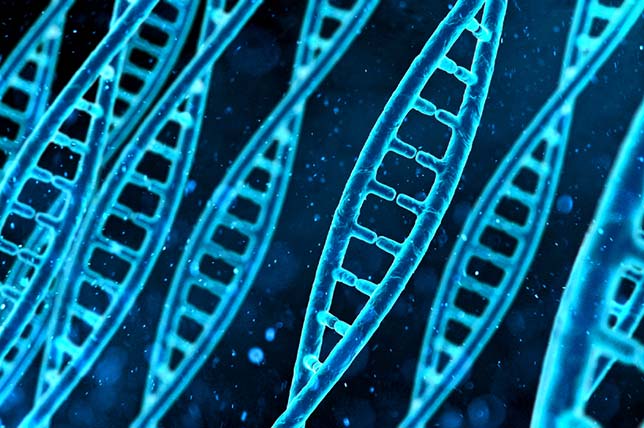Education Attainment Genes Identified, but Power to Predict Outcomes Minimal
- By Dian Schaffhauser
- 08/16/18

An enormous study has identified 1,271 genetic variants associated with education attainment among people with European ancestry. However, the international group of scientists that undertook the project warns that any kind of predictive power for education outcome suggested by the variants is minimal.
Two years ago, a smaller study undertaken by members of the Social Science Genetic Association Consortium (SSGAC) had identified 74 variants linked to educational attainment among a sample of about 300,000 people. The latest research, also done by SSGAC, examined a sample size for 1.1 million people, making up one of the largest genetics studies to date. The data came from the UK Biobank Resource, the personal genomics company 23andMe and the combined results of 69 other, smaller genetic studies. These datasets comprised participants of European ancestry from 15 countries who were least 30 years old. The research findings were recently published in Nature Genetics.
The scientists emphasized that the total influence of the genetic variants is small, "explaining" only about 4 percent of the variation in educational outcomes across individuals.
"Even variants with the largest effects predict, on average, only about three more weeks of schooling in those who have those variants compared to those who don't," explained Daniel Benjamin in a statement. Benjamin is an associate professor for the Center for Economic and Social Research at the University of Southern California and one of 80 authors on the paper. "Yet, when we analyze the combined effects of many genetic variants, taken together they can predict the length of a person's formal education as well as demographic factors."
To understand the impact of the gene variants in educational attainment, the scientists came up with a "polygenic score" that enumerates the predictive power of a combined million genetic variants — including those tied to educational attainment and the other remaining variants measured across the genome. They found that the predictive power of the score is about as large as that of demographic factors, such as household income and maternal education.
In this context, a "prediction" is what the researchers would expect to see in new data examined in the same environmental conditions. (An FAQ on the project gave this example: Where a genetic variant is associated with lung cancer due to its effect on smoking, researchers wouldn't "expect the genetic variant to be as strongly predictive of lung cancer" in an environment without cigarettes.)
"The very small effects of individual genetic variants confirms what we've seen in our earlier work, and it's an important finding in itself," noted Benjamin, adding that it would be "completely misleading to characterize our results as identifying 'genes for education.' Yet, the polygenic score is useful for research because it combines the effects of a very large number of genetic variants."
While the outcomes for education are primarily influenced by many environmental and social factors, they're also affected by genes associated with cognitive function, such as memory, and personality traits, such as conscientiousness.
The same genes associated with educational attainment are also influential "in virtually all stages of brain development and in neural communication within the brain," said Peter Visscher, a professor at the University of Queensland, Australia and another senior author of the paper.
Another interesting finding: Genetic variants on the X chromosome explain virtually identical amounts of variation in men and women. This finding lends support to the idea that there are no genetically based gender differences in the amount of variation in educational attainment.
The work continues. Now, the researchers are seeking "ever larger sample sizes" to continue identifying genetic variants with ties to educational attainment.
The full results of the study are available for a small access fee in Nature Genetics.
About the Author
Dian Schaffhauser is a former senior contributing editor for 1105 Media's education publications THE Journal, Campus Technology and Spaces4Learning.